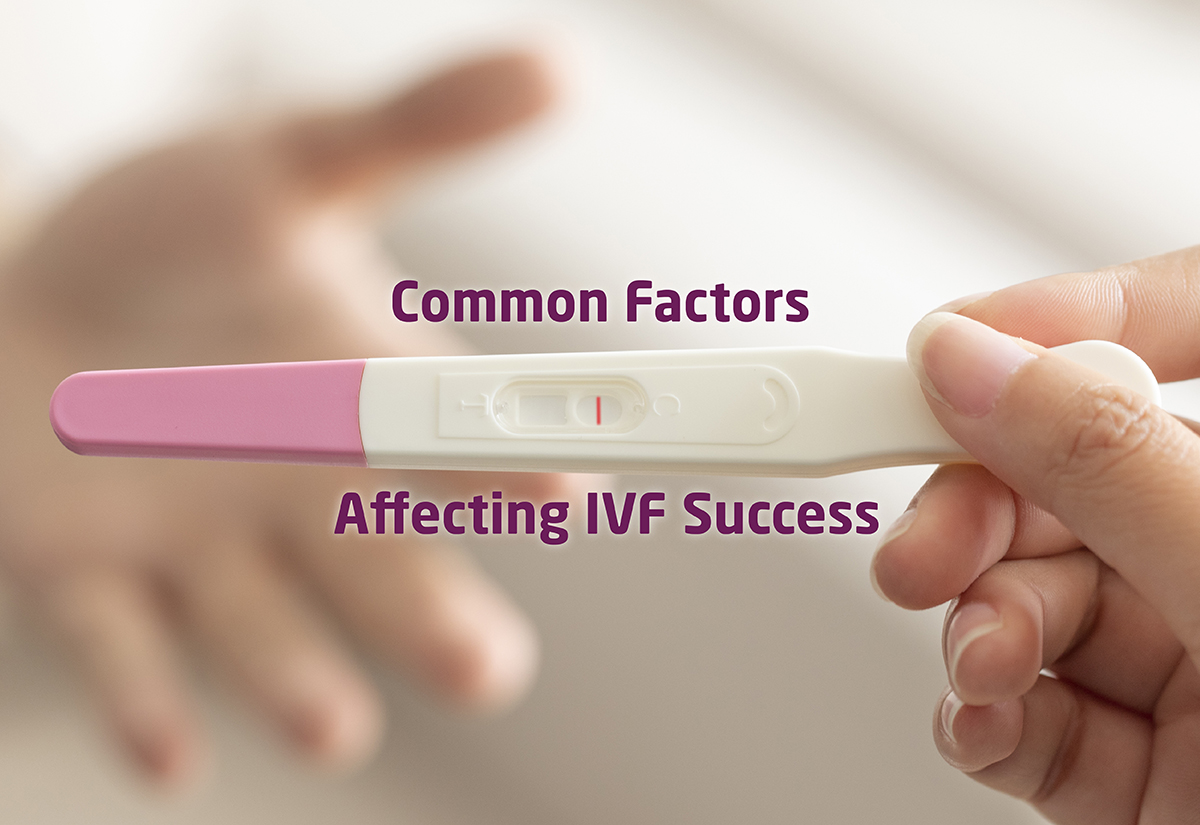Common Factors Affecting IVF Success
IVF is the go-to solution for many couples struggling with infertility, making up 99% of assisted reproductive procedures. However, while IVF is a preferred choice, remember that success differs for everyone. Every person’s fertility journey is unique, and many factors influence the outcome of treatment. Learning about your options and discussing them with your doctor helps you find the best solution for your situation.
Read More: All About Fallopian Tube Reversal Surgery
Top common factors that affect IVF success rate
- Age: A woman’s age plays a huge role in the success of IVF. For Indian women between 24 and 35, the chances of IVF treatment success are around 60-65%, because this is the most fertile period for their body. With ageing, the quality and number of eggs naturally decline, making IVF challenging to succeed. More women are now choosing to start families in their 30s. It’s important to remember that with age, fertility declines, which can impact the success of IVF.
- Past pregnancy: A woman has a higher chance of getting pregnant through IVF/ICSI if she has been pregnant before and carried her baby to term. Whereas, a woman who has had multiple miscarriages may have problems conceiving with the help of IVF. For such females, advanced ART techniques like PGT-A, PGT-M, PGT-SR and ERA could help as per their history.
- Type of fertility issues: For the majority of couples dealing with a variety of typical fertility-related issues, IVF treatment is a miracle. For instance, IVF may usually deal with issues including endometriosis, blocked fallopian tubes, PCOS in women, and low sperm count, motility, and morphology in men. Other issues such fibroids, ovarian malfunction, and uterine abnormalities are more challenging to treat with basic IVF and call for additional procedures or donor programs. ICSI is the most effective treatment for male factor infertility.
- Lifestyle: If one partner is a regular smoker, it seriously affects the chances of successfully conceiving. Couples trying to conceive or who are already expecting should actively make healthier lifestyle choices. Body weight is another important factor in IVF success. Women who are overweight or underweight generally experience more challenges in conceiving than those with a healthy BMI.
Common Myths About IVF Success Rates
A common myth about IVF is that it guarantees success. While IVF is effective, its success varies based on factors like age and the specific infertility issues at play. Another misconception is that hormone injections used during IVF can cause long-term side effects. While some may experience temporary effects, most studies show these medications are safe and don’t lead to lasting harm. Go for IVF with realistic expectations.
IVF success rates can vary widely among clinics, with some claiming very high rates. These statistics are influenced by several factors, including implantation, pregnancy, and live birth rates. It’s essential to understand that IVF success rates differ from those of other assisted reproductive technologies (ART), such as Intrauterine Insemination (IUI). Similarly, the success rates for Intracytoplasmic Sperm Injection (ICSI) can also vary, and the likelihood of success often increases with each subsequent IVF cycle. Conduct thorough research and engage in open discussions at your IVF centre to have a better understanding of what to expect.
To get the best desired results from your IVF treatment, choose the best IVF doctor, at a well-reputed IVF centre. At Ferticity IVF, we match your expectations and extend the support that meets your needs. Our caring team is excited to hear your story and find the best way forward. Reach out to us today, log onto https://ferticity.com/

